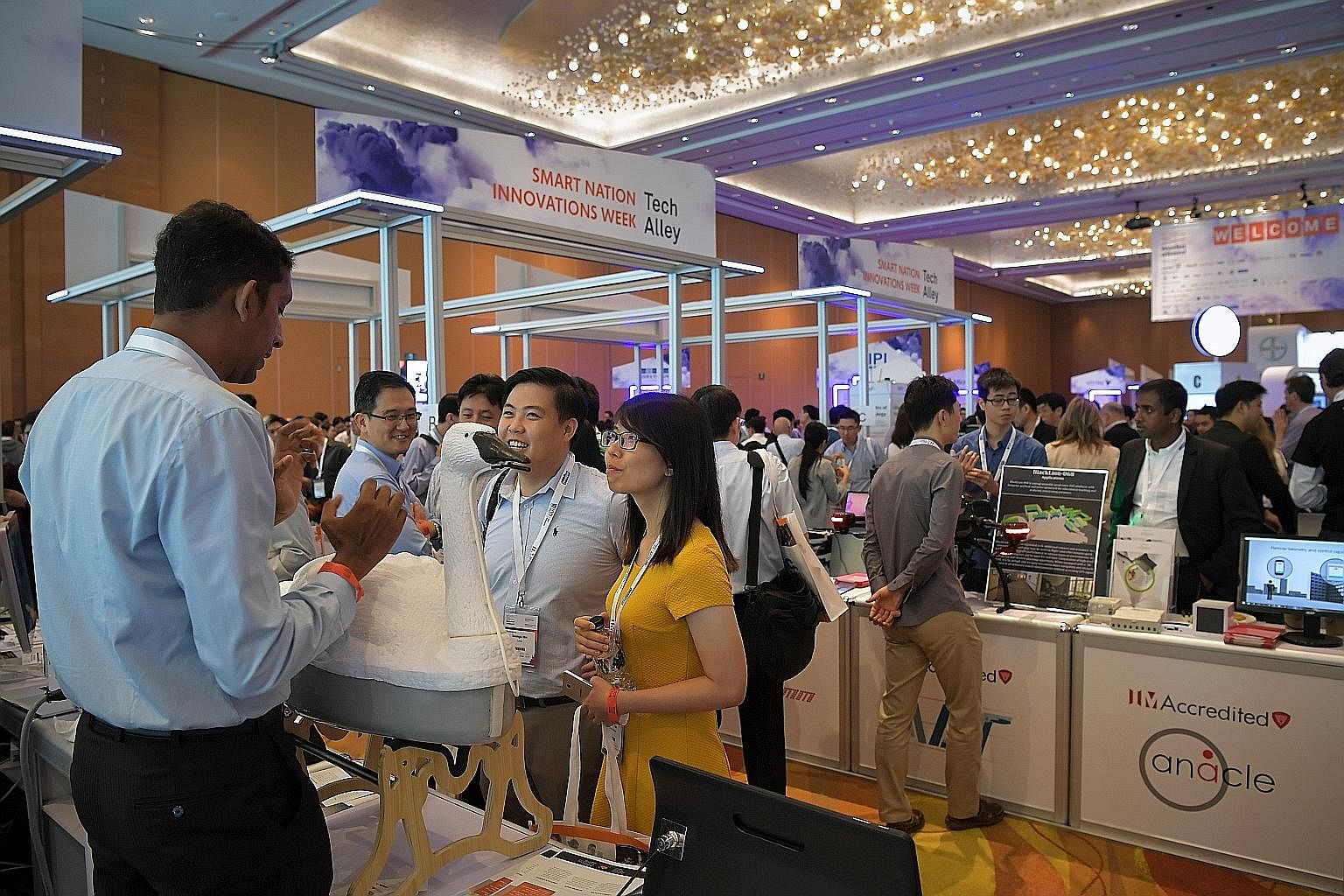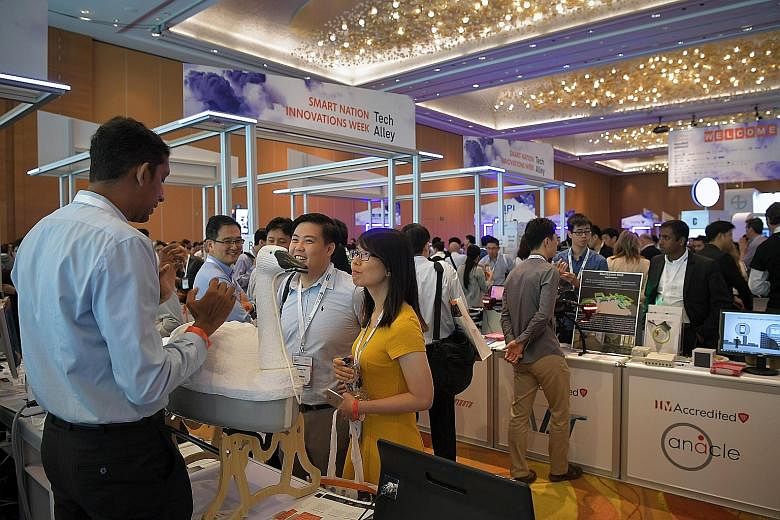Artificial intelligence (AI) has, in recent years, moved from the realm of science fiction to become the latest obsession pursued by start-up founders, CEOs and policymakers alike.
Decades of research in AI have now borne fruit in the form of practical applications, thanks to advances in processing power, the rise of cloud computing, the widespread adoption of smartphones and racks of databases storing ever-growing amounts of data.
And Singaporeans may be among the first in the world to enjoy the end product, due to both government funding and a rich AI start-up ecosystem.
Last week, the National Research Foundation announced the setting up of AI.SG, a $150 million multi-agency effort that aims to tackle and, more importantly, solve national problems in healthcare, transport and finance by the application of AI research.
The main beneficiaries of this programme are citizens, who might get smart personal health assistants on their smartphones, for example. Another scenario: faster travel time on the roads due to AI in traffic lights that can intelligently detect when foot traffic is light so that it keeps the green lights on longer than usual.
And this is on top of the AI-centric products that a host of local tech start-ups have already designed, marketed and been actively selling, which are already being used by consumers and businesses.

Yet, despite all the research and development in AI here, don't expect robots or a Skynet equivalent to overthrow humanity and rule the world any time soon.
AI applications, while still new and exciting, are still localised to very specific and, often, back-end processes. They churn away in the background in servers located in large, sterile centres, doing all the necessary crunching for things like image recognition, fraud detection and natural language processing.
Take something like image recognition, such as the one rolled out in clothing chain Uniqlo developed by local AI company ViSenze. Users can take photos of Uniqlo products from anywhere - magazines, a screenshot - and use an image search tool to get the exact product information.
It's like asking a very knowledgeable friend, "Hey, do you know what shirt this is?", removing the guesswork of typing in a search engine.
The same principle applies for Evie, a personal assistant developed by local company mimetic.ai which schedules appointments in a user's calendar based on his e-mail threads.
Within the thread, an Evie user can just carbon-copy the Evie bot and say "Evie, is Friday morning good for a meeting?", a question which the AI can process using natural language programming to understand and come up with a reply.
And it is in these small, almost trivial instances that I feel AI will shine and be of the greatest use to the most number of people here.
The grand vision of AI, like fully formed assistants with their own personalities and witty banter as portrayed in countless movies and video games, may still be years away.
Billions of people enjoy the comfort of travelling by car while never stepping foot in a spaceship, although both are forms of transportation.
The same goes for AI. The rudimentary AI technology that serves billions in invisible and subtle ways that make their everyday lives more convenient will trump the large, flashy displays of AI that have only great research and theoretical purposes.


